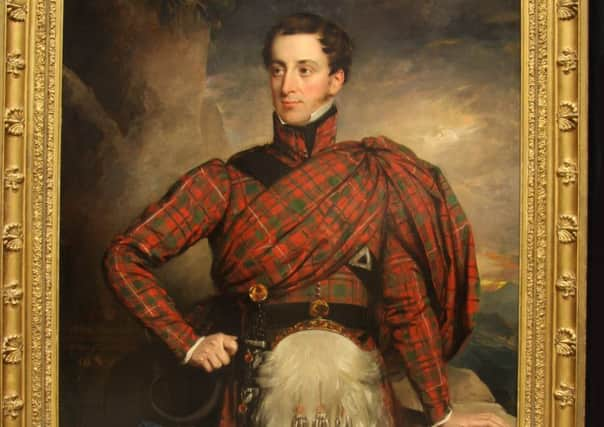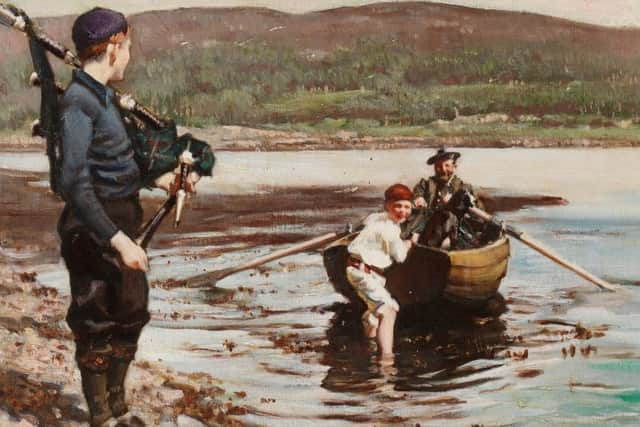MacKinnon Clan Chief portrait up for auction


The early Mackinnons even provided shelter to Robert the Bruce during his escape to Carrick.
After Bruce triumphed in the Battle of Bannockburn in 1314, the Mackinnons were rewarded with land on the Isle of Skye.
Advertisement
Hide AdAdvertisement
Hide AdNow, a handsome portrait of William Alexander Mackinnon, the clan’s 33rd chief who lived between 1784 – 1870, is coming up to auction on Thursday, with a valuation of £6,000 to £8,000.


The picture is attributed to Sir George Hayter (1792 – 1871).
According to the Scottish mythology, the McKinnon clan is supposed to have defeated the Vikings at Goir a’ Bhlair, on the eastern slopes of Beinn na Cailleach, above Broadford.
They then became emboiled in the Wars of Scottish independence and helping Bruce.
William Alexander Mackinnon was born in Broadstairs, Kent, and educated at St John’s College, Cambridge.


He succeeded to the family estates as the 33rd chief of the Clan Mackinnon on the death of his grandfather in 1809.
The following year Walter Scott wrote: “Mackinnon of Mackinnon, a young gentleman born and bred in England but nevertheless a Highland chief ... who now visits the Highlands for the first time, is anxious to buy back some of the family property which was sold long since.”
Advertisement
Hide AdAdvertisement
Hide AdIn 1812 he married the only daughter and sole heiress of Joseph Budworth Palmer, who the previous year had succeeded in the right of his wife to the name and estates of her brother Roger Palmer of Ruth and Palmerstown in Mayo.


At the time of their marriage, Mackinnon’s wife was considered to be one of the handsomest women and one of the greatest heiresses in the kingdom.
A Whig, he was Member of Parliament for Dunwich from 1819 to 1820, for Lymington from 1831 to 1832 and from 1835 to 1852, and for Rye from 1853 to 1865.
Mackinnon was elected a Fellow of the Royal Society in 1827, submitting a paper on the absorption of atmospheric moisture by the state of chalk and limestone.
He was also invested as a fellow of the Society of Antiquaries. He was chairman of the Furness Iron and Steel Co at its inauguration in 1866.


The oil on canvas portrait is among the highlights of London’s Specialist Auctioneers Harry Moore-Gwyn – British and Continental Pictures. It is among a collection of works associated with the Mackinnon clan.
The second portrait is another oil on canvas of members of the clan by a Scottish loch, signed ‘indistinctly’ l.l.: W.Fife. Its estimate is between £400 to £600.
Advertisement
Hide AdAdvertisement
Hide AdThe third is a watercolour of the Mackinnon children painted by William Skeoch Cumming in 1899. It is also priced at between £400 and £600.
